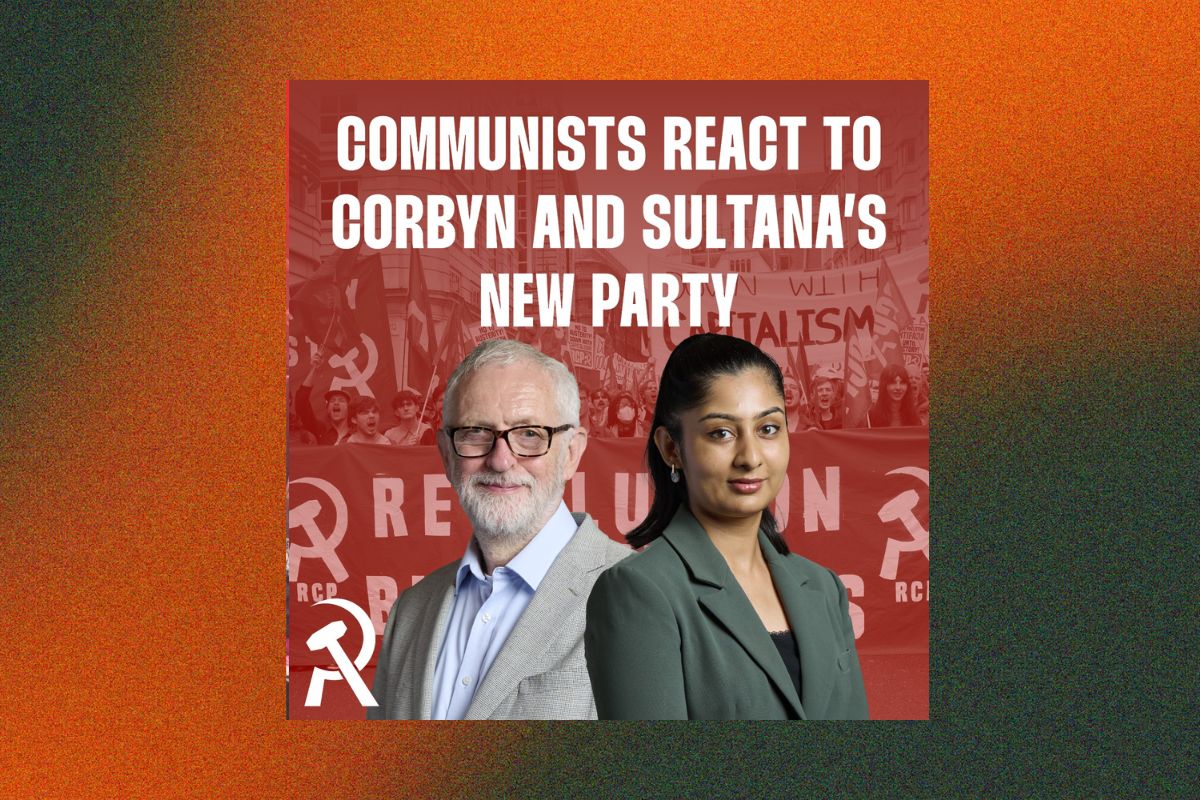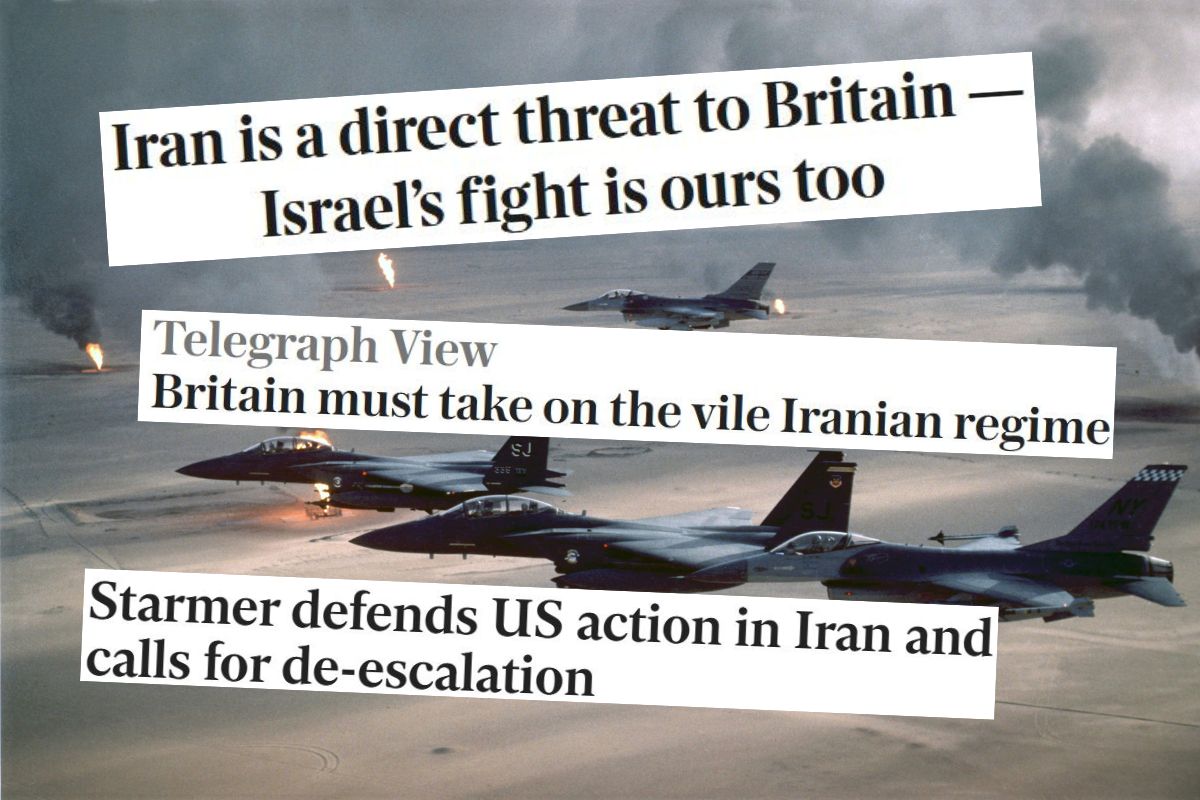The phone-hacking scandal that has led to the closure of the News of the
World newspaper has brought to the surface the real state of things
within the British establishment. The rottenness of a regime,
that prides itself at being a model of “democracy,” is now out in the
open for all to see. What has now been revealed is that a powerful media
empire that for years has played a key role in British politics, making
and unmaking political leaders, has been buying police officers, using
influence with politicians, and all this peppered with out and out
criminal activity.
The phone-hacking scandal that has led to the closure of the News of the World newspaper has brought to the surface the real state of things within the British establishment. The rottenness of a regime, that prides itself at being a model of “democracy,” is now out in the open for all to see. What has now been revealed is that a powerful media empire that for years has played a key role in British politics, making and unmaking political leaders, has been buying police officers, using influence with politicians, and all this peppered with out and out criminal activity.
This is not just any ordinary scandal that after a brief airing can be swept under the carpet and hidden again from public view. It is part of a more general crisis of the whole establishment. Millions of ordinary working people in Britain are angry and disgusted at what has been revealed in the recent period. But, more importantly, the scandal risks destroying the authority of important pillars of the state, key instruments that are used by the ruling class to justify its position in society.
The media is an important weapon in the armoury of the establishment, for it is a means of getting across the views and opinions of the ruling class to the millions of ordinary workers. This is clear during any important strike. How many times have we seen the media playing down the real numbers at demonstrations and rallies of the labour movement? The March 26 trade union demonstration is a clear example.
But it is not just the numbers taking part that is lied about. Striking workers are always presented as greedy and unreasonable. Especially the gutter press, such as the News of the World (NoW), have made it their trade to spread stories about so-called social security scroungers and how the problem is all due to excessive spending on the part of the state on welfare benefits.
All this can have some effect so long as the media is seen to be a source of objective “truth.” This scandal has seriously brought that idea into question.
However, it is not only the media that is now tainted. The police are also being brought into question, as it has been revealed that several police officers were being paid by people at the NoW for inside information and it seems, in some cases, even personal mobile phone numbers were provided by the police that were then subsequently hacked.
Politicians have also been discredited – as if the MPs’ expenses scandal were not enough in itself! Both the present Tory-led government and the previous Labour administration have been closely linked to the Murdoch empire. In the case of Cameron, we have the revelations of Rebekah Brooks being invited to his Christmas dinner and Coulson being classed as one of his mates. Thus the Prime Minister of this country is in the unfortunate position of seeing one of his “friends” spending some time inside one of Her Majesty’s prisons. No doubt, many people will be thinking that there are a lot of politicians that should be in Coulson’s company!
Serious
How serious the situation is from the point of view of the ruling class can be seen from the recent edition of The Economist (July 7, 2011). One of the Leader articles is entitled, Britain’s phone-hacking scandal – Street of shame. The language and tone of this article is not that of the average editorial comment of The Economist. It is the language of an extremely concerned capitalist commentator, issuing a warning to the whole establishment. In their view serious action must be taken and must be seen to be taken, in order to restore the authority of important institutions.
The very opening sentence gives an idea of how the editor means to go on, “Not for nothing is it known as the gutter press.” The article explains that “journalism is reeking” but then adds very quickly, “So are Britain’s politicians and especially its police.”
The fact that the NoW had hacked the phones of some individuals had been known for some time, but until recently it seemed that this had been limited to celebrities, actors and so on.
So long as the hacking only affected these types, in the minds of ordinary people there was no big deal, but once it became apparent that murder victims, families of soldiers who had died in Iraq and Afghanistan, victims of terrorist attacks and so on had also had their phones hacked, then the approach of ordinary workers is very different.
The Economist puts it so: “Until this week the victims seemed to be celebrities, publicists, politicians and other journalists—the sort of people who, in the British mind, probably deserve what they get. But… the families of terrorism victims, dead soldiers and two other murdered girls are also said to have been targeted. If true, that is callousness heaped on criminality.”
Methods
However, The Economist does not limit itself to attacking the NoW newsroom. It goes on to explain: “It is notable that Britain’s other tabloid newspapers, which love to kick a rival when it is down, have been disturbingly quiet about the allegations of phone hacking at the News of the World. It may turn out that the paper was merely the most enthusiastic, ruthless lawbreaker among several.”
What is being admitted here is that the methods used by the NoW are common to many British newspapers.
If we take five of the main daily tabloids, The Sun, Daily Mirror, Daily Star, Daily Mail and Daily Express, we have a powerful instrument of propaganda in the hands of the bosses. The combined readership of these papers according to some calculations is over eight million. What we are being told by The Economist is that this huge slice of the British public is being fed news from outfits not much better than the News of the World!
Such revelations come at a bad time for this government and the class it represents. Students have been asked to accept massive tuition fees hikes; school students have had their EMA taken away from them; and workers are being asked to work longer, retire later and on lower pensions, while many are facing redundancy in the coming period.
Getting the workers to accept all this without a fight will take some convincing! Those eight million who read the tabloids are being told that there is no other way. Now the credibility of these journals has been seriously dented.
That explains the severity of the tone of The Economist. Its editors understand that unless serious measures are taken, unless the culprits are seen to be severely dealt with, then the credibility of the media cannot be rebuilt.
The police forces are also tainted. As the same Editorial states, “Then there are the police. The initial investigation by the Metropolitan Police into phone hacking was pitiful. For years the cops sat on a huge sheaf of seized documents and did nothing. Sloppiness is one thing. But the police tend to be hand-in-glove with popular newspapers. An implicit deal applies: we give you stories, you raise the alarm about criminals on the loose. And, occasionally, put your hand in your pocket too. Files handed over last month suggest that police received some payments from the News of the World.”
It is clear now that police officers in important positions tried to play down the scope of the phone-hacking.
Assistant Commissioner John Yates, a senior Scotland Yard detective, back in 2009 decided not to re-open police inquiries into phone hacking and yet there were already allegations being made that thousands of people may have been the victims of such practice.
Now the same detective “massively” regrets his previous decision. It seems that Assistant Commissioner Andy Hayman, who led the original inquiry into phone-hacking, may have been unwilling to proceed further because the NoW had some information on his private life that he preferred not be made public.
It has now also been revealed that Hayman was entertained by the NoW at the height of the scandal, having had two dinners and three lunches all paid by the newspaper between 2005 and 2007.
The two detectives referred to here, at best, can be accused of not pursuing an investigation vigorously enough. But the latest revelation show that some officers – we don’t know their names yet – were actually taking bribes from people at the NoW. So while the police is used to kettle protesting students, to beat down workers on picket lines, to harass the poorest sections of society, they are at the same time involved in corrupt practices. Again, an important institution of the state is being undermined.
The call is now being made for “a full judicial inquiry.” Again, The Economist is very blunt on this matter: “If the result of such an inquiry is a bloodbath in Fleet Street and Scotland Yard, so be it.” This means some important sacrificial lambs must be presented to the public, the idea being that the “rotten apples” will have been sifted out and the institution itself will remain fundamentally healthy. No doubt their motto is “If you want things to stay as they are, things will have to change.”
It seems, however, that the Prime Minister of this country has not been reading the same books as the editor of The Economist, for he has been far less enthusiastic in rooting out the wrong-doers. Could this be because some of them he considers close friends, such as Coulson? Here Cameron has put his “friendship” above the interests of the class he represents, and thus receives the full wrath of The Economist: “Mr Cameron’s refusal to push ahead with this [inquiry] forcefully is incredibly cowardly and shortsighted.”
No doubt, Cameron – once he has had a full briefing from the serious capitalist voices – will be making speeches distancing himself from all this but the damage has already been done. In the past few months we have seen the Liberal-Democrats being seriously damaged by their participation in this coalition government, while the Tories have picked up some of their votes. This present scandal is now affecting the Tory party itself, as they are seen to be very close to some of the people involved.
Democracy
What this whole scandal has done is to undermine the whole regime. The London Evening Standard editorial comment on July 7 put it very clearly: “…what is most troubling is the way that the scandal is infecting public faith in the police, the press and politicians, all of whose basic honesty is central to democracy.”
What they mean by democracy here is not what ordinary people conceive it to be. For the bosses “democracy” is a system where ordinary basic democratic rights exist, such as the right to vote, to free speech, etc., but where the real power is in the hands of the big corporations, such as Murdoch’s media empire.
Important decisions such as who the capitalist class want to govern the country, what policies they should carry out, and what interests they should defend are not really in the hands of ordinary working people. We have no powers within this parliamentary system to decide when we should all retire, how many hours a week we should work, how much of our money should be spent on healthcare and education, of whether or not to go to war, such as in the case of Iraq, etc., etc.
The problem is that the bosses as a class are a very small group of people, numerically speaking. The vast majority of the population works for a living, gets a wage from a boss, whether in a factory, a building site, a classroom or at a desk working on a computer. The interests of this huge majority are diametrically opposed to those of this clique. That is why the credibility of the media, the police and parliament itself is so important, so “central to democracy.” This credibility is required to maintain a grip on the consciousness of millions of working people.
This government has embarked on a savage attack on everything that makes for a minimally civilised existence for working people. But this already provoked a massive student protest in November last year, followed by the biggest trade union demonstration in the history of Britain on March 26th and June 30th saw huge strike action by teachers, lecturers and civil servants.
That was merely a taste of even bigger things to come. In such a situation the establishment needs all its armoury in place, the media to convince the masses that austerity is necessary, the police to attack the workers when the media fails to stop them protesting and the government and parliament with their authority intact in order to continue pushing forward the austerity measures.
Contradictions
What this scandal has done has been to weaken all these institutions. This comes on top of the MPs’ expenses scandal, which seriously undermined the whole political set up. The banking crisis also revealed the massive contradictions that have built up. The very bankers who are seen by the millions as responsible for the crisis have been getting huge bonuses, while workers are called on to foot the bill.
All this is piling up and will inevitably lead to an explosion of anger that we have never seen before in this country.
It is therefore not by chance that we see one scandal after another involving the main institutions of the state. Methods such as those used by the NoW are not new. They have been used for years, as is now being amply revealed. But so long as the system could guarantee what was defined as the “feel good” factor, ordinary people left the politicians to get on with it. They even tolerated some of the stench coming from the cesspit. Now, however, millions of people are being hit very hard and everything is starting to come out in the open.
Were the Labour leaders up to the task, the situation Britain is in could be the starting pointy of a mass movement against this government and the millionaire class that stands behind it.
Unfortunately the Labour leaders have also fawned on the Murdochs of this world, transfixed by the power of this corporation. There could not be a sharper contrast between the conditions faced by millions of workers and the total lack of fighting leadership on the part of the Labour leaders.
The task ahead of us is therefore to bring the Labour organisations into line with the needs of the working class. This must start in the trade unions and spread to the Labour Party itself.
In the coming struggles a leadership of the labour movement that is up to the task of leading the workers must be forged. Once this is achieved, we can guarantee that what at the moment is a concern of what the present crisis can lead to actually becomes reality and the militant mood brewing among the workers combines with a fighting leadership.






